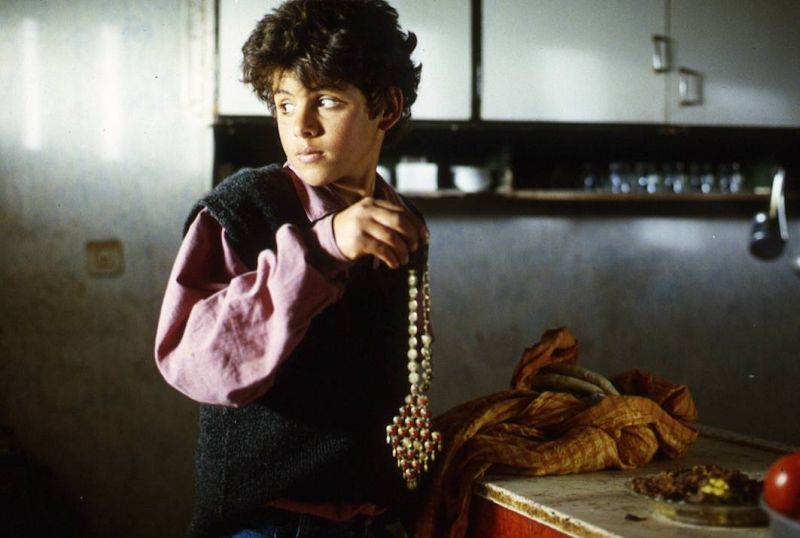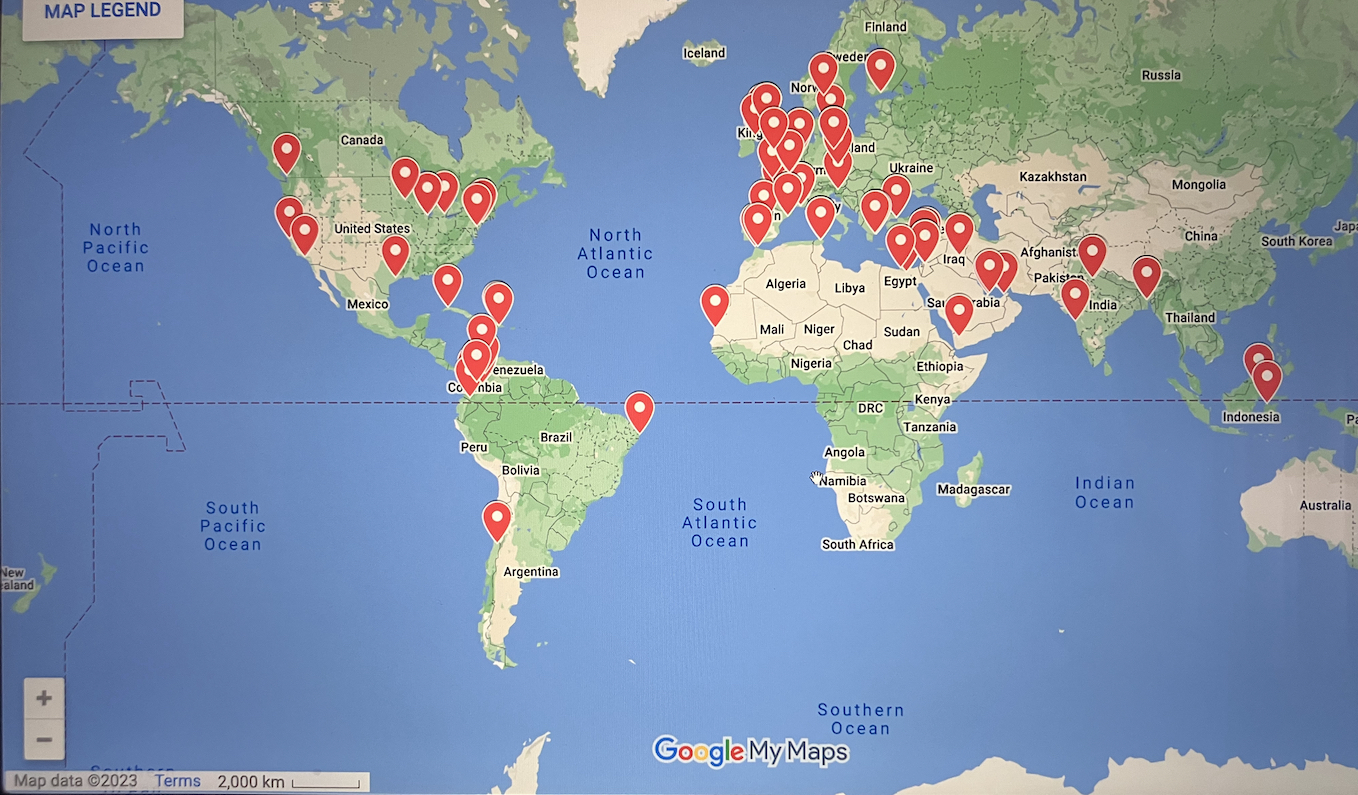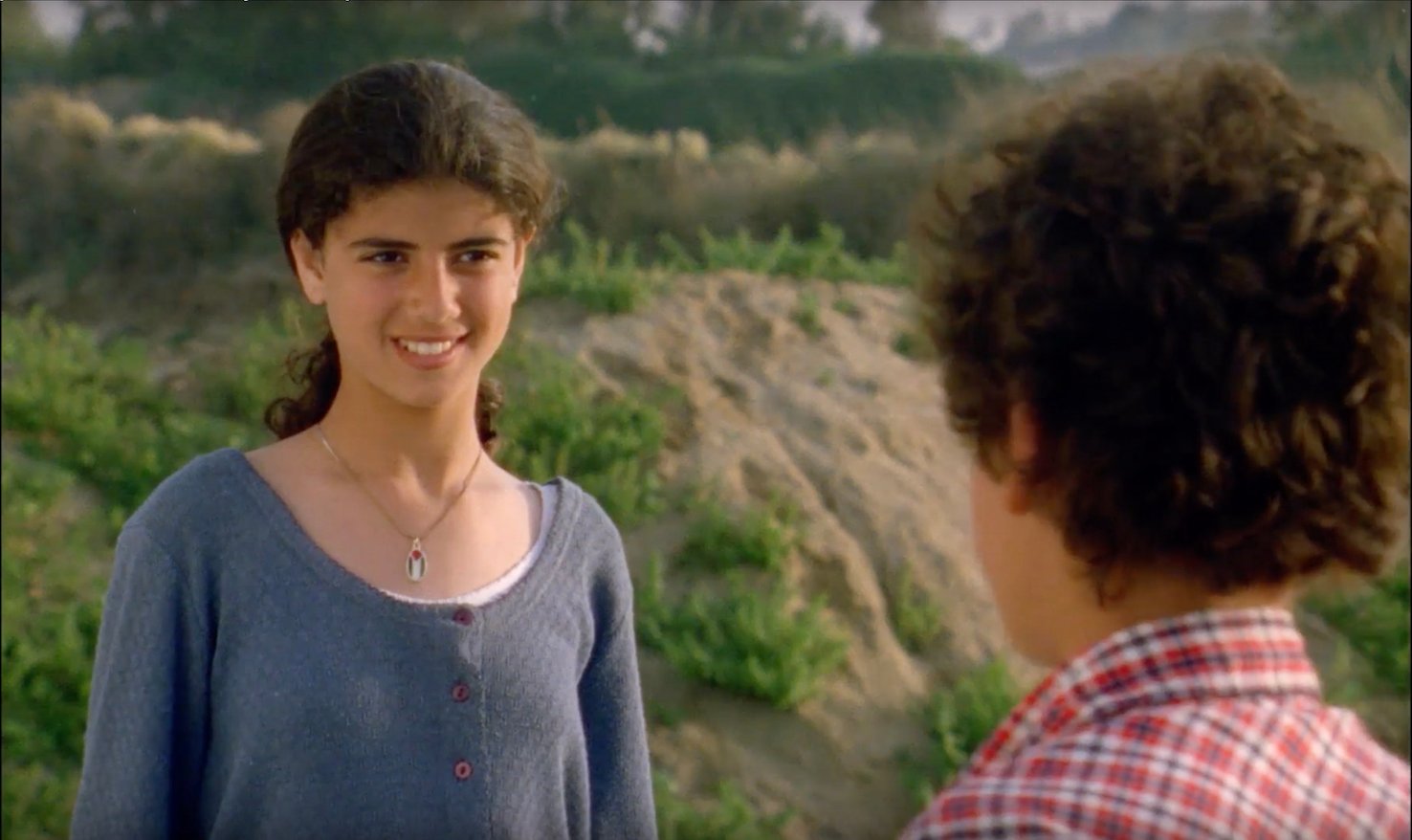
A still from Michel Khleifi’s 1995 feature "A Tale of Three Jewels," screening at Metro al-Madina Nov. 2 at 8 p.m. as part of as part Palestine Cinema Days’ Balfour Declaration anniversary event. (Courtesy of: Aflamuna)
Follow our live coverage here.
BEIRUT — Palestinian filmmaker Michel Khleifi shot one feature in Gaza, “Tale of the Three Jewels,” released in 1995. The film will have a rare Beirut projection at 8 p.m. this evening, Nov. 2, 2023, to mark the 106th anniversary of the Balfour Declaration.
A note signed by the UK’s foreign secretary, that piece of paper announced the British Empire’s support for a “Jewish home” in its Palestine mandate — which Zionist leaders interpreted, not incorrectly it turned out, as sanctioning the creation of a state. The declaration resonates today in the material support and diplomatic cover Western states give Israel while the people of Gaza face nearly a month of unremitting bombardment and a mounting ground offensive, which by noon of this day had claimed over 9,000 Palestinian lives, over 3,700 of them children.
 A map showing where the Palestine Cinema Days' screenings will take place.
A map showing where the Palestine Cinema Days' screenings will take place.
This evening’s projection at Metro, one of several taking place in Lebanon over three days, is among 100-plus screenings of Palestinian fiction and nonfiction films on more than 90 screens worldwide. The event was conceived by FilmLab Palestine, the organizers of the Palestine Film Days festival. Scheduled to run Oct. 24-Nov. 2, with programming in five cities around the West Bank and Gaza, the 10th edition was canceled after the Israeli military began its revenge attacks following Hamas’ Oct. 7 “Al-Aqsa Flood” operation.
Hanna Atallah, FilmLab Palestine’s founder and artistic director, spoke with L’Orient Today from Ramallah. He described an incursion the Israel army had launched into parts of the city that killed at least one person and the daily demonstrations and clashes that had erupted at checkpoints around town.
“On a personal level it’s not easy to witness this horror,” he said. “A colonial machine is working nonstop to erase us, our voices and narratives. I have friends in Gaza and am sharing an office with a colleague whose family lost their home there.”
Atallah said the pro-Israeli bias prevalent in the “counterfeit narratives” being spun by Western media drove FilmLab and its collaborators outside Palestine to stage these screenings.
“Major international media outlets, social media, and world leaders are distorting or obscuring the narrative and historical context of Palestine,” he said. “They continue to dehumanize us and our suffering. As the genocide against us in Gaza is being legitimized and everything we have strived for since 1948 is under threat, we decided we should [project] our voice beyond the borders, to show the world our narratives and tell our stories.
 A still from Michel Khleifi’s 1995 feature "A Tale of Three Jewels," screening at Metro al-Madina Nov. 2 at 8 p.m. as part of as part Palestine Cinema Days’ Balfour Declaration anniversary event. (Courtesy of: Aflamuna)
A still from Michel Khleifi’s 1995 feature "A Tale of Three Jewels," screening at Metro al-Madina Nov. 2 at 8 p.m. as part of as part Palestine Cinema Days’ Balfour Declaration anniversary event. (Courtesy of: Aflamuna)
“With our friends and partners from around the world supporting us, we managed to organize more than 110 screenings of films by Palestinians and about Palestine. Our supporters and partners really believe in justice and dignity, creating a space to represent narratives that come directly from Palestinians.”
Eight films, three days
The eight titles FilmLab and its partners have programmed for the global event are devoutly nonpartisan. They are an assortment of fiction and nonfiction works that explore facets of Palestinian life under occupation and in the dispersion of the refugee community.
Though set in Gaza during the Israeli military incursion of 1990, Khleifi’s “Three Jewels” centers on the love story of a pair of Palestinian kids. Carol Mansour’s 2017 documentary “Stitching Palestine” recounts the stories of 12 women whose families were dislodged from their homes. All have different professions — lawyers, artists, homemakers, activists, architects, politicians — but all are unified by their passion for Palestinian embroidery and the stories of displacement they share.
Shot between bombardments, Philip Gandt and Mickey Yamine’s “Gaza Surf Club,” 2016, is a nicely shot German doc upending cliches that all young men in the blockaded territory are full-time fighters. With financing and instruction, some divert themselves on the sea. Intentionally or not, the film interrogates that iconic line from “Apocalypse Now,” “Charlie don’t surf!” In a not-dissimilar vein, the doc “One More Jump,” 2021, by Italian filmmaker Manu Gerosa, examines the Gaza occupation through a pair of Parkour enthusiasts.
Other films address the occupation more directly. Elia Suleiman’s contemporary classic “The Time That Remains,” 2009, and “Farha,” 2021, the startling debut of Jordan director Darine Sallam, are quite divergent fictional depictions of the 1948 Nakba. Rashid Masharawi’s 1994 fiction “Curfew” depicts 24 hours in the life of a Palestinian family in a Gaza refugee camp during a 1993 Israeli curfew.
Raed Andoni’s nonfiction film “Ghost Hunting,” 2017, documents how he and another survivor of the Israeli prison system, with the help of several former prisoners, create a life-sized model of Moskobiyya prison, which they use as the set for the reenactment of their prison experiences.
In Lebanon
FilmLab’s principal partner in Beirut is Aflamuna (formerly Beirut DC), a film development association active across the region.
“We have been working for many years with our dear friends and colleagues at Palestine FilmLab,” Aflamuna director Jad Abi Khalil told L’Orient Today. “If we work in Palestine, we work with FilmLab.
“When Palestine Cinema Days was forced to postpone, we talked together about what can we do and a week ago we decided that we must do something for the Balfour anniversary, because people should understand that what is happening in Palestine today started somewhere.
“The idea was to open a space for our friends around the globe, so we went online and told them. It was a great surprise that we will have more than 100 screenings between today and tomorrow, all around the world — from the States to Canada to South America to Europe to the Arab world but also Malaysia and India.
“The solidarity has been really great. The most important thing was to let our friends in Palestine know that people around the world are not aligned with the policies of their governments. That they're not alone.”
“Tale of the Three Jewels” will be projected at 8 p.m. this evening, Nov. 2, 2023, at Beirut's Metro al-Madina.
